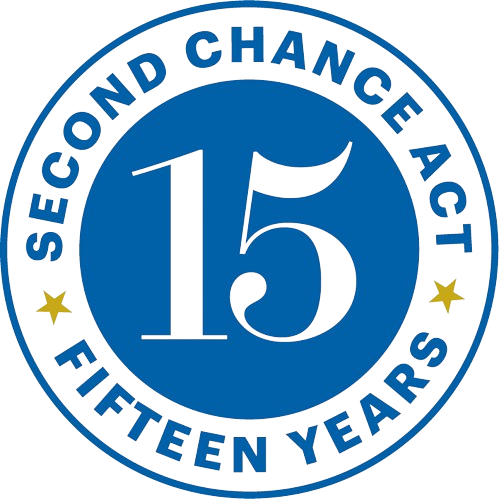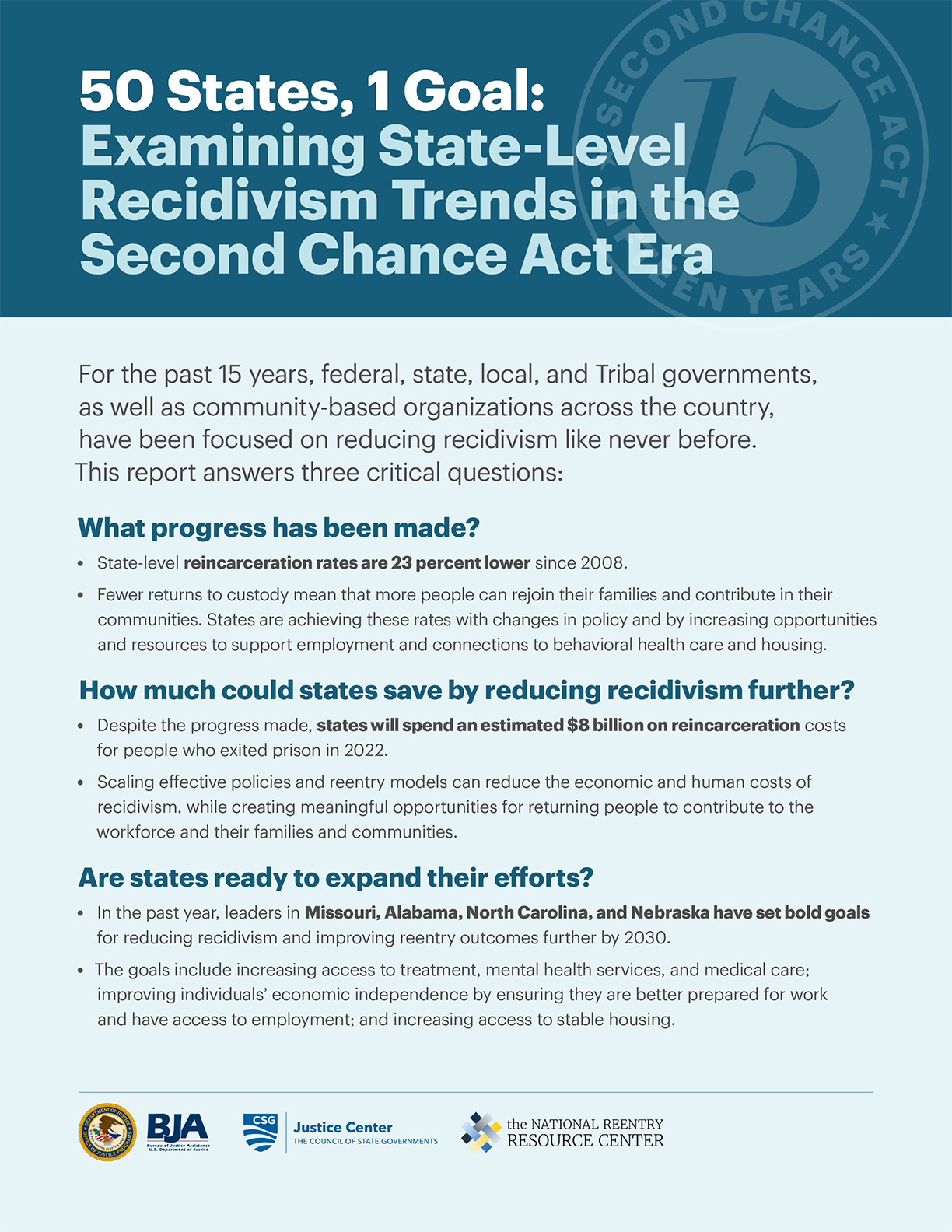Second Chance Month (April) aims to inform and highlight the many opportunities for state, local, and tribal governments and community-based service providers to build meaningful second chances for people returning from incarceration.
Join us as we celebrate Second Chance Month and fifteen years of the Second Chance Act.
Subscribe to stay informed about events, funding opportunities, and resource releases during the month.
Featured Resources
50 States, 1 Goal: Examining State-Level Recidivism Trends in the Second Chance Act Era
This report highlights the significant progress made in reducing recidivism across the country over the past 15 years. Since its passage in 2008, the Second Chance Act has invested in state and local efforts to improve outcomes for people leaving prison and jail, with a total of nearly 1,200 grantees from 48 states and 3 territories administering programs that have served more than 400,000 people.
Building Reentry Ecosystems: A Blueprint for Innovation
Written by John Bae, one of BJA's Second Chance Fellows, this report offers a framework and guidelines to develop ecosystems to complement reentry initiatives and build safe, thriving communities. Advocates, formerly incarcerated people, funders, practitioners, researchers, and systems stakeholders offered perspectives on developing such ecosystems.
Programs and Funding Opportunities
BJA oversees a number of Second Chance Act programs, as well as other programs, that relate to corrections and reentry matters. These programs provide state, local, and tribal governments, private and nonprofit organizations, and colleges and universities with the tools, training, and resources they need to support people experiencing and working in reentry.
The following programs are currently accepting fiscal year 2024 applications for funding:
FY24 Improving Adult and Youth Crisis Stabilization and Community Reentry Program
This program serves to minimize potential for experiencing crisis and improve recovery outcomes for people with serious mental illness, substance use disorders, and co-occurring disorders who are currently involved with the criminal or juvenile justice systems or reentering the community from these systems.
FY24 Second Chance Act Community-based Reentry Incubator Initiative
This program funds organizations to serve as financial intermediaries to community-based reentry programs (subawardees) and to provide support via an incubator model in order to increase capability and capacity within the subawardees’ organizations.
FY24 Second Chance Act Pay for Success Program
This program provides funding to use performance-based or outcomes-based contracting to enhance or implement clinical services and other evidence-based responses to improve reentry, reduce recidivism, and address the treatment and recovery needs of people with mental health, substance use, or co-occurring disorders who are currently involved in the criminal justice system or were formerly involved.
FY24 Community Supervision Strategies
This grant program seeks to enhance community supervision agencies’ capacity to help reduce recidivism among, and improve outcomes for, people under supervision by using the swift, certain, and/or fair principles of intervention.
FY24 Second Chance Act Community-based Reentry Program
This program provides funding to enhance or implement evidence-based responses to improve reentry, reduce recidivism, and support successful transitional planning for individuals who are currently, or were formerly, involved in the criminal justice system.
FY24 Improving Substance Use Disorder Treatment and Recovery Outcomes for Adults in Reentry
This program seeks to support state, local, and tribal governments, as well as community-based nonprofit organizations, to establish, expand, or improve treatment and recovery support services for people with substance use disorders during their incarceration and upon reentry into the community.
FY24 Second Chance Act Smart Supervision Program
This program provides grants to improve the capacity and effectiveness of probation and parole agencies to increase supervision success rates by more effectively addressing individuals’ risk and needs and reducing recidivism.
Toolkit
Access the Building Second Chances: Tools for Local Reentry Coalitions toolkit, which is designed for local city, county, and community leaders who want to play an active role in improving reentry policy, practice, and outcomes. Within, you will find user-friendly references to seminal publications, research findings, and noteworthy examples of the foundational knowledge needed to design new reentry strategies and reinvigorate existing ones.



